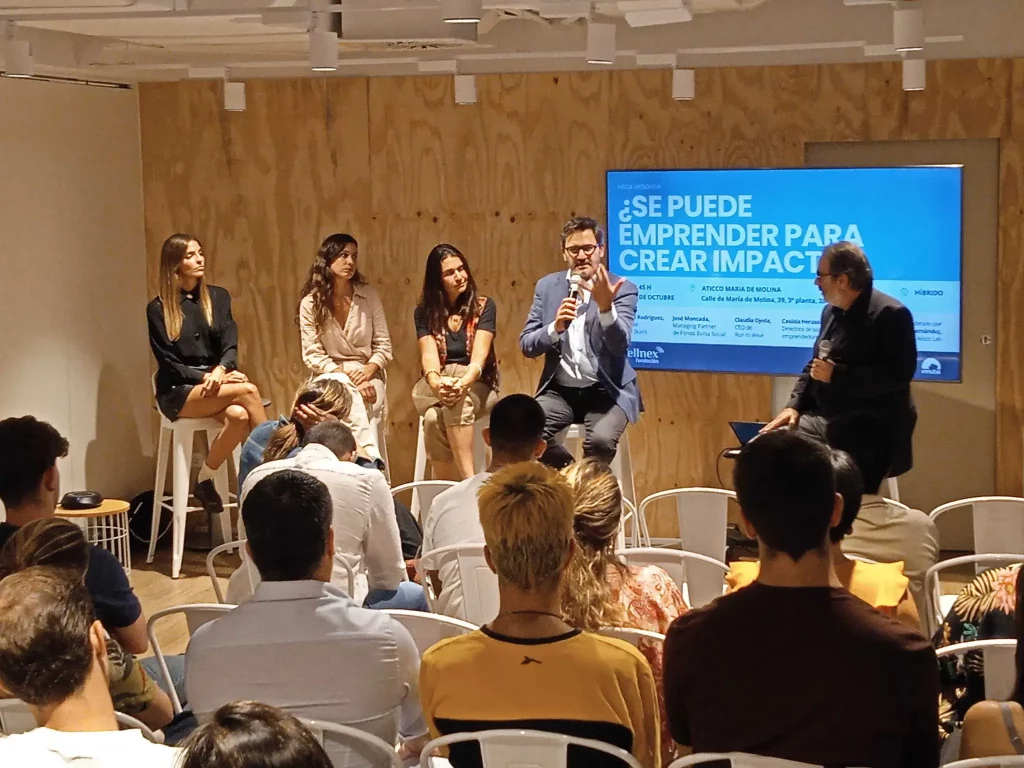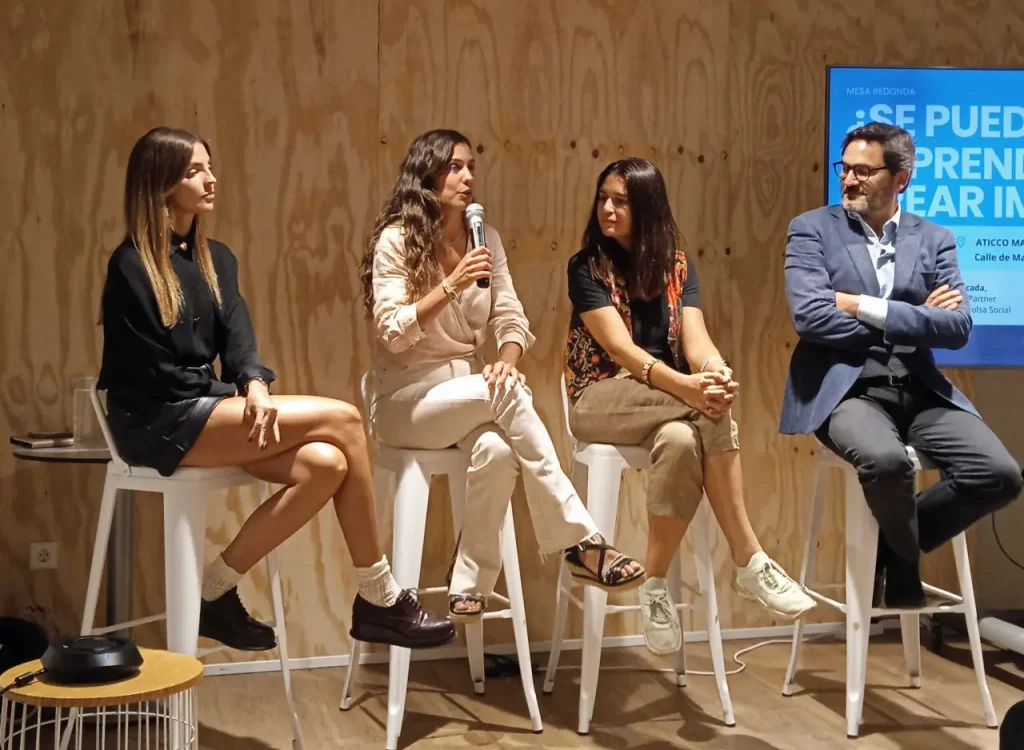Trends
Trends
NOV
03
2023
Foundation
Impact entrepreneurs
Creating a company or launching a project to help change the world. To offer goods or services that are more sustainable, more respectful of the planet and people-centred. That is the goal of impact investing, a lever for transforming society and changing an economic model that is squandering natural resources and failing to correctly distribute wealth, marginalising the weakest.
Impact entrepreneurs use Artificial Intelligence (AI), the most disruptive technologies and advanced work methods such as Design Thinking, which promote creativity, empathy and teamwork. But their distinguishing sign is their priority to generate social or environmental value, solve a problem that very often they have experienced themselves or have encountered at first-hand or in their family.
“Entrepreneurship is like riding a roller coaster: it is a challenge that is more difficult if it is not aligned with your values,” explains Marta Rodríguez, CEO of Blind Stairs, a kind of LinkedIn with a social accent. Her company has developed software that allows company HR chiefs to eliminate discriminatory biases based on gender, nationality, race, age, ethnic origin and sexual orientation when selecting personnel. Thanks to this software, job offers are written in inclusive language and interviews can be carried out using avatars in the metaverse. The start-up was selected in the second edition of Cellnex Bridge, the programme run by the Cellnex Foundation in collaboration with the accelerator AticcoLab and the social innovation consultancy Innuba.
The textile industry is the second most polluting on the planet. It consumes 93,000 million cubic meters of water per year and is responsible for contaminating 20% of drinking water. Run to Wear was created in 2021 as a clothing exchange community aimed at female customers but has opened a new business line to help brands become more sustainable and achieve traceability for their products, which will become an obligation since the European Union will force them to take responsibility for their waste. The company’s CEO, Claudia Ojeda, with her background in business consulting and fashion and luxury brand management, explains that they also perform consulting for companies and “the brands themselves want to know what their sustainability score is and how to improve.” Blockchain (NTT), chips (NFT), QR, digital passport… the future of the textile sector depends on technology and sustainability, explains Ojeda, whose initiative so far has focused on the luxury and affordable luxury sector.
A more complicated life, but a happier and fuller one
“Impact investing is not for everyone,” warns José Montcada, Managing Partner of Fondo Bolsa Social, an investment fund that supports the growth of young companies that want to generate a social and environmental impact. “The question is: what do you want to do with your money? Do you want to earn money while also helping to build a fairer society? explains this expert who has closed financing rounds worth EUR 35 million since 2015. Impact investing, he emphasises, is not philanthropy. You need a good business plan and, above all, to give visibility to the expected impact on society or the environment. “Out of the more than 3,000 projects in the two financing instruments we have run, we have chosen only 50. If you give visibility to the impact you hope to achieve on society or the environment, you have already earned a tick.” And he continues: the life of the impact investor is a more complicated one, but is happier and fuller.”
The concept of social entrepreneurship was first coined in 1980 by Bill Drayton, CEO and founder of Ashoka, to refer to innovative initiatives that aimed to generate a scalable social impact following entrepreneurship principles (innovation, effectiveness, small-scale pilots, etc). Casilda Heraso, director of entrepreneur selection at Ashoka, explains that they help entrepreneurs and NGOs. “Ashoka does not invest money, but we do place a social seal on the initiative,” she says. “In 40 years we have learned how to transform systems, scale the project and seek financing,” she adds. In a few years’ time, impact investment will be no different from ordinary investment because in the future “any company not created with a social and environmental objective will fail to retain the talent of young people, who increasingly seek to be agents of change.”
All of them took part in a round table under the title “Can you become an entrepreneur to create an impact?”, moderated by Quino Fernández, CEO of AtticoLab, a partner of the Cellnex Foundation in the Cellnex Bridge programme, which this year reached its third edition and has promoted an innovation ecosystem to which nine projects with different profiles have already gained access. Fernández highlighted that most of the selected projects had a single founder. “It’s hard to find that soulmate whose eyes light up with your project,” says José Montcada.


















